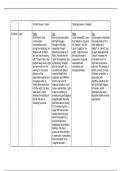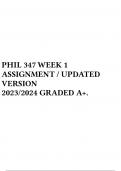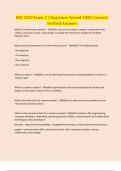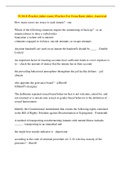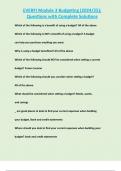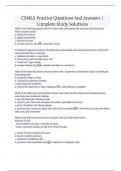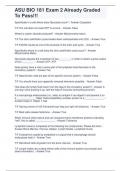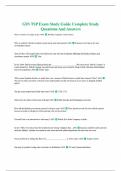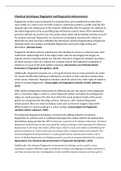Symbols Light Night: Day: Night: Day:
All of Nora’s most Nora is also associated Lizzie “upbraid[s]” Laura Lizzie eagerly anticipates
controversial with light imagery that “twilight is not good the productivity of “the
conversations occur throughout the play, for maidens”, but still mere bright day’s
during the nighttime; her especially through Laura “long[s] for the delight”. In ‘Up-Hill’, day
flirtation with Dr Rank references made by Dr night” - night becomes is again associated with
and her final reckoning Rank. He calls her the the natural mode of “labour”, whereas the
with Torvald. Nora “shut “Spirit of Happiness” and, expression of secrets, “slow dark hours” of
[her]self away every night symbolically, “thank[s] associated with night are synonymous
and wrote late into the [her] for the light”. It is uncertainty and with rest. The release of
evening” in conscious consistent with Ibsen’s transgressiveness death, contrary to much
defiance of the humanist beliefs that Christian symbolism, is
expectations placed on a happiness and fulfilment associated with
bourgeoise wife. By aren’t to be found in nighttime. Death is also
having Nora walk alone religious salvation, but in tied to the light imagery
into the night (“my Nora human relationships. Light of Heaven, which
went alone”), Ibsen is also an emblem of represents the same
stresses the hostility of morality and psychological figurative rebirth as Nora
the life that she is enlightenment: the lamp experiences
choosing to pursue that Nora calls for during
Act 2 restores light to a
stage that has become
morally dark and gives
literal illumination to a
room that has been
enlightened as to Rank’s
feelings. The play’s
events run from morning
to near-dawn, symbolising
Nora’s transition to an
‘enlightened state’
,Doors / There are few liminal spaces in ADH; Nora is either The distance and vastness of death is something that
thresholds inside the “cramped” enclosure of the Helmers’ cannot be recrossed, often literalised through the
apartment, or she is facing the bitter cold of the motif of a door in Rossetti’s oeuvre
Norwegian winter. While other characters are able to Echo: “Thirsting, longing eyes / Watch the
come and go as they please, the door holds special slow door / That opening, letting in, lets out
significance for Nora because it is a symbol of her no more”
entrapment; a physical manifestation of the social ‘Shut Out’: “The door was shut. I looked
constructs that confine her to the ‘doll’s house’ between / Its iron bars”
Rossetti’s “silent land”, at once an image of ‘Remember’: “Remember me when I am gone
peace and rest, but also remoteness and away / Gone far away into the silent land”
isolation, finds an echo in ADH. Nora has “no ‘Remember’ perhaps offers the only possibility of
idea what will happen to [her]” after she overcoming death. The speaker hopes that a
“slam[s] the door” and indeed Torvald and the “vestige” of their thoughts will live on with their
audience are left only with silence after this surviving lover - a meditation on (uncharacteristically
moment. Shrouding the play’s ending in for Rossetti) the transformative powers of love and
silence and mystery seems to befit the memory to immortalise people, restoring them to life.
uncertain future that it points towards Love is also shown to be capable of overcoming
near-death in ‘Goblin Market’ - “life out of death”
Nature Nora derives joy from the natural world, talking The speaker of ‘A Birthday’ also connects their own
excitedly of a time when the “air’ll be fresh and the high spirits with imagery of nature: a “singing bird”,
skies blue”. She connects the improvement in her an “apple tree” and a “rainbow shell”. This is typical
family’s fortunes with the prosperousness of nature in of Romantic poetry, which often celebrates the
Spring. Upon hearing that Torvald is going “to make beauty of the natural world. Wordsworth called
lots and lots of money”, Nora eagerly anticipates the Romantic poetry a “spontaneous overflow of powerful
new season, when she can “take a little trip feelings”. In ‘A Birthday’, the splendour of the natural
somewhere” and “see the Sea again” and man-made worlds are so beautiful that they
themselves are poetry; pure emotion to be expressed
Both Ibsen and Rossetti use imagery of natural The speaker seems bent on enjoying the pleasures,
produce to explore both the joy of being alive and the however brief, of their apparently singular birthday,
bitterness of loss. Dr Rank remarks to Torvald “why delighting in the sumptuousness associated with the
shouldn’t one make the most of this world? As much natural materials of “vair and silk”. Lynda Palazzo
as one can for as long as one can”. His hedonism has argues that the creative process is the joy
, echoes of his father’s (euphemistic) enjoyment of expounded in the poem. Anthony Harrison expands
“champagne and foie gras”, “truffles”, “oysters” on this, suggesting that, for Rossetti, the “only true
“champagne and port” and permanent fulfilment to be found in love is in the
art it gives birth to”
Birds Birds are traditionally symbolic of freedom in Rossetti also subverts the literary precedent of using
literature, but Torvald’s pet names for Nora - which bird imagery to connote freedom, especially in
cast her as a “songbird” and “skylark” - merely ‘Song’, where the speaker looks forward to not
emphasise how trapped she is, constantly subject to “hear[ing] the nightingale sing on as if in pain”.
her husband’s scrutiny and infantalising comments. Rossetti thus associates the nightingale with misery
This is something that the play’s title prepares us for: and death, emphasising their sense of hopelessness
a ‘doll’s house’ is hardly the expansive place of and eagerness to escape human suffering
“freedom and beauty” that Torvald believes their This is a direct contrast to the premise of
home to be. However, Nora’s status as a “skylark” Keats’ Ode to a Nightingale, a poem in which
from the earliest moments of the play also the speaker praises the bird’s exquisite
foreshadows her emancipation at the end, liberating capacity for song
herself from the gilded cage in which she was once For Rossetti, as for Ibsen, the Romantic associations
forced to “sing”. Her vitality and constant motion of birds, and the freedom they supposedly promise,
recommend her for the arduous task ahead; a bird is are redundant in a society that treats women as
far more at home in the outside world than in a objects to be controlled and infantalised
domestic environment
Kate Millett: “Nora confronted every
convention and chivalrous masculine prejudice
that kept her caged within a child’s toy
structure”. Believes that Torvald treats Nora as
a “housepet” and an “infant”
Money Consumerism / capitalism: Consumerism / capitalism:
Although Norway gained independence from Britain in The abundance of fruits “all ripe together” speaks to
1814, much of the Victorian influence on the middle advancements in trade, agricultural practices and
class remained. In an increasingly capitalist society, refrigeration that allowed farmers and grocers to
the bourgeoisie found that their new wealth brought manipulate growing times to suit a demanding
new pressures population
This included the importance placed on a “Longed to buy but had no money” - critique
, flawless domestic appearance; Nora is of the consumerism that arose as an
preoccupied with keeping the house “pretty” outgrowth of the moneyed middle class,
and “attractive” for Torvald looking for ways to display their wealth
Franco Morretti: Ibsen explored the “grey area” Herbert Tucker notes that the techniques
of bourgeois life. Articulates the disjuncture, in used by the goblins to persuade the sisters to
Ibsen’s plays, between the bourgeois values of eat are very similar to complaints made about
restraint and the capitalist values of excess advertisements in the nineteenth century
Torvald “knows how to make a home
attractive” and the admission that he “likes to
live well” comes across as hypocritical in light
of his comments to Nora about “overspending”
In Stef Smith’s 2018 production of the play, Nora’s
debt is updated to payday loans and credit cards,
underscoring the pressure that scarcity under
capitalism places on both men and women
Money: Money:
For Nora, “working and earning money” is not only Lizzie and Laura’s money comes from harvesting
“tremendous fun” but Nora’s commitment to raising crops for cattle food: “All my gold’s on the furze”
funds to pay back her “interest and quarterly In ‘Goblin Market’, Lizzie also feels empowered by
instalments” is her secret “pride and joy”. She cites her access to money. Following the goblins’ assault,
her induction into the “world of business” as proof that she ventures home with her “silver penny”, “its
she isn’t “completely useless” bounce like music to her ear”
Nora understands her rights as a consumer and Lizzie establishes grounds for fair transaction, asking
asserts them: she refutes Torvald’s aspersions on her the goblins to either sell her their fruits or, “without
character by reminding him that she has “repaid the further parleying”, “give [her] back [her] silver penny”
instalments as agreed” Claudia Capancioni: ‘Goblin Market’ marks
Context: Napoleonic code. That both Nora and the convergence of economic and aesthetic
Lizzie are forced to give up their “coin” for the womanhood
sake of men could perhaps be a comment on “Women are agents of change, are
the restrictive parameters of marriage laws, challenged and move forwards”
which limited female property ownership
Ibsen’s contemporary detractors parodied Nora’s
financial independence: Thomas Guthrie’s A Birdcage

